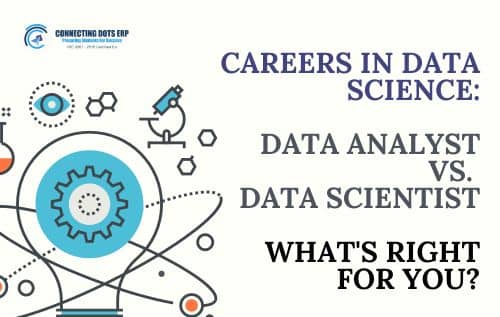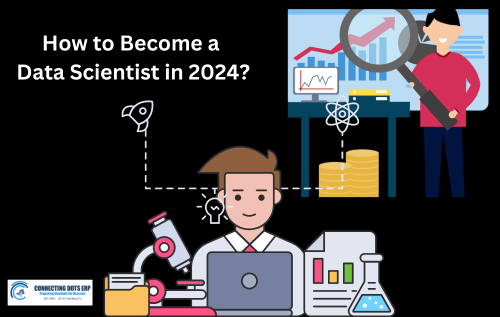Careers in Data Science: Data Analyst vs. Data Scientist – What’s Right for You?
The rise of data in the 21st century has fundamentally changed the way businesses, governments, and institutions operate. Data is now a vital resource, enabling organizations to make more informed decisions. With the explosion of data collection, the demand for skilled professionals who can interpret and leverage data has grown significantly. In fact, job postings for data-related roles have skyrocketed, particularly for data science course in Pune graduates.
Two of the most sought-after roles in this field are data analysts and data scientists. While these titles may seem similar, the responsibilities, skills, and career paths they offer are distinct. In this blog, we’ll explore the key differences between the two roles and help you understand which career path might be the best fit for you. Whether you’re looking into a data analytics course in Pune or considering a full-fledged data science training in Pune, this guide will provide insights into both options.
Role of a Data Analyst
Data analysts focus on examining large datasets to derive actionable insights. Their primary job is to help organizations understand past data trends. A typical day in the life of a data analyst revolves around:
- Data Extraction: Collecting relevant data from databases, Excel sheets, or cloud platforms.
- Data Cleaning and Manipulation: Organizing and processing the data to make it usable for further analysis.
- Data Interpretation: Providing business insights using statistical tools, such as averages, counts, and trends.
- Presentation of Findings: Creating reports, dashboards, or presentations to explain findings in an easy-to-understand format.
A good data analytics training in Pune will cover these aspects in depth, ensuring students have practical experience in data querying, Excel, and data visualization tools like Tableau or Power BI.
Role of a Data Scientist
While data analysts examine past trends, data scientists look ahead, using complex algorithms and machine learning models to predict future outcomes. They aim to answer questions such as “What might happen next?” by building predictive models based on past data. Some key tasks a data scientist might handle include:
- Data Collection & Preprocessing: Collecting raw data and preparing it for analysis, similar to data analysts but with a focus on larger, more complex datasets.
- Building Models: Creating machine learning models that can predict future outcomes. This often involves using tools like TensorFlow, Python, and cloud computing platforms like AWS or GCP.
- Advanced Analytics: Applying statistical methods and algorithms to find patterns and trends in data.
- Implementation & Testing: Data scientists work closely with engineers and developers to implement and test their models, ensuring that the predictions are accurate and reliable.
If you’re interested in predictive modeling, AI, or machine learning, opting for a data science training in Pune can be the perfect route to launch your career as a data scientist.
Skills Required
Data Analyst:
- Strong proficiency in Excel, SQL, and basic programming languages like Python.
- Familiarity with data visualization tools like Tableau, Power BI, or Google Data Studio.
- Analytical thinking with a knack for storytelling through data.
Data Scientist:
- Proficiency in Python, R, and machine learning frameworks such as TensorFlow or PyTorch.
- Strong background in mathematics, statistics, and computational algorithms.
- Experience with cloud platforms (AWS, Azure) and big data tools (Hadoop, Spark).
Both roles offer exciting opportunities, and training programs like the data science course in Pune or data analytics course in Pune can prepare you for either career, depending on your interests and technical proficiency.
Salary and Career Prospects
Data analysts are often the entry point into the world of data. The average salary for a data analyst in India is around ₹5,00,000 per year, though this varies depending on location and experience. In Pune, salaries can reach up to ₹8,00,000 for senior analysts, particularly in top tech firms.
On the other hand, data scientists typically command higher salaries due to the advanced skill set required. The average salary for a data scientist in India is approximately ₹10,00,000 per year, with top professionals in Pune earning upwards of ₹15,00,000 annually. Due to the more complex nature of the role, data scientists often have advanced degrees, and many come from a background in software engineering, physics, or mathematics.
Which Path is Right for You?
If you prefer working with data on a day-to-day basis, extracting meaningful insights, and presenting them to business stakeholders, then pursuing a data analytics training in Pune might be ideal for you. You’ll be more focused on historical data, querying databases, and developing business insights.
On the other hand, if you’re passionate about using machine learning, AI, and complex algorithms to forecast future trends, then a data science course in Pune will align better with your career goals. This role is more suited for those who enjoy mathematical models, coding, and working with cutting-edge technologies.
Conclusion
Both data analysts and data scientists play crucial roles in today’s data-driven world. Whether you’re just starting out or looking to switch careers, the demand for both roles is on the rise, and both offer high-paying, fulfilling opportunities. Taking up a data science training in Pune or a data analytics course in Pune will help you develop the necessary skills to enter this exciting field. With the right training and dedication, you can become a part of the ever-evolving world of data science.




